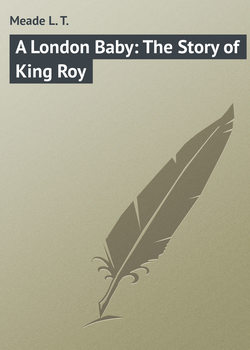Читать книгу A London Baby: The Story of King Roy - Meade L. T. - Страница 2
Chapter One
ОглавлениеJohn Henry Warden was a carpenter by trade; he was a well-to-do workman, employed constantly in a profitable and moneymaking business. God had also endowed him with excellent mental and physical powers. Sickness was unknown to this man, and as to the many heart-aches which come into the daily measure of most other lives, they were strangers to his nature. He did not understand moping; he had no sympathy with gloom. He considered himself a successful man, he was also ambitious; he meant, if he lived, to leave this world in a much higher position than when he had entered it. He was very much respected by his neighbours, for he was a strictly honourable, upright, and honest man. But though respected he was not loved. It was his misfortune that never yet in all his life had he either awakened or given love. And yet he was not without those closest ties which knit hearts to hearts. He had been a husband; he was now a widower and a father. He had married a young and beautiful girl, a sensitive creature who needed love as the plants need sunshine. She lived with him for a little over ten years, all the time, year after year, fading slowly but surely. Then she died; no one said she died of a broken heart – Warden least of all suspected it. He regretted her loss, for he considered a mother the right person to bring up her children, and he felt it a pity that she should have left all the good things of this life, which by-and-by he might have provided for her. He had even expressed this regret to her as she lay on her death-bed, and her answer had surprised him.
“But there’ll be love up in heaven. I’m so hungry for love.”
The wife and mother died, and Warden did not fret. It would have been very sinful to fret, for although he scarcely considered himself religious, yet he had a respect for God’s dispensations. Yes, he was outwardly a model character: he worked early and late; he saved money; he was never in debt; he defrauded no man; his evenings were spent either in attending lectures of working men like himself or studying the subjects he loved at home; he never drank; he never swore; he was looked up to, and brought forward as an example to follow for many a poor drunken wretch. But yet in God’s sight that poor drunkard, struggling, though struggling feebly, to repent, was far nearer, far dearer than this Pharisee, who had never yet known love, human or divine.
Warden’s wife died, leaving to his care two children. Faith, the elder, nine years of age at the time, was a pale, silent child. She knew enough of her father’s character to suppress all her real self before him. Roy, the younger, aged three months when his mother left him, showed from his earliest moments a disposition differing widely from either father or mother. By-and-by that sweet soul would develop the love of the one parent without her weakness, the strength of the other without his hardness. Warden, in reality loving no one, having never in all his existence experienced either the joy or the pain of true love, yet believed that he had this feeling for his boy. He was undoubtedly very proud of the little child; he was his son, he was beautiful. Warden, when he looked at him, dreamed dreams, in which he saw himself the founder of a house and a name. He would make his boy a gentleman; he worked ever harder and harder as this thought grew and gathered strength within him. As to Faith, she was useful in helping and training Roy. For her own individual existence he had no special thought. She was but a girl; she would grow up another weak, good, loving creature like her mother. She might or might not marry. It did not greatly matter. Of course he would do his duty by her – for whenever had John Warden, in his own opinion, neglected that? She should be educated; she should have her chance in life. But he had no high opinion of women, and, though he thought he loved his son, he did not even pretend to his own heart that he cared for little Faith.
It was to this man – this hard, hard man – who lived so uprightly in the eyes of his fellow men, but so far from his God, that the same God of love and pity and infinite compassion would yet reveal Himself. He must hear the voice of God; but, alas! for his hardness of heart, it must be in the whirlwind and the storm; not in the still small accents.
